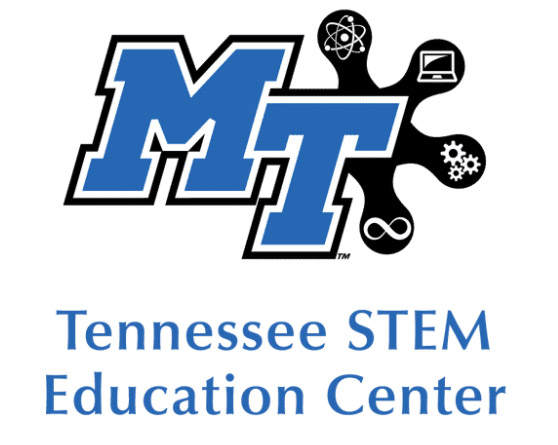Deeper Learning Institute
According to the National Council for Agricultural Education (The Council), agricultural education prepares students for successful careers and a lifetime
of informed choices in the global agriculture, food, fiber, and natural resources
systems. While agricultural education is delivered through classroom and laboratory
instruction, supervised agricultural experiences, and student leadership organizations,
we know that agricultural education students receive the greatest frequency of instruction
during the school day. As such, emphasis on what we teach as well as how we teach is critical to achieving
the mission of agricultural education.
As school-based agricultural educators, how can we prepare students for successful transition from high school to postsecondary
education and/or careers? Deeper Learning is one promising approach.
In fact, a longitudinal study from the American Institutes for Research [AIR] (2021) that focused on students who
experienced deeper learning in high school found that opportunities for complex problem
solving, creative thinking, collaboration, and real-world connections were significantly,
positively related to reports that participants’ jobs aligned, or were a step on the
path toward, their career goals. These findings suggest that experiencing deeper learning
opportunities in high school may contribute positively to students’ civic engagement
and work experiences later.
What is Deeper Learning?
“Deeper Learning describes the higher-order thinking skills, learning dispositions,
and collaboration skills needed for students to succeed in twenty-first century work
and civic life” (Deeper Learning Hub, 2022). The William and Flora Hewlett Foundation defined deeper learning as “a set
of competencies students must master in order to develop a keen understanding of academic
content and apply their knowledge to problems in the classroom and on the job” (American
Institutes for Research AIR, 2022). Embedding deeper learning activities into lesson
planning helps students to develop a mastery of core content, critical thinking skills, collaboration skills, communication skills, learning-how-to-learn skills, and an academic mindset . According to the Alliance for Excellent Education (2022), project-based learning
(PBL) is one instructional approach that engages students in deeper learning opportunities,
where students develop knowledge and skills while investigating a meaningful problem
or answering a complex question.
What is the Deeper Learning Institute for Agricultural Education?
Over the next two years, practitioners at Middle Tennessee State University in the
Tennessee STEM Education Center (TSEC) and the School of Agriculture will provide
a Deeper Learning Institute (DLI) for high school Agricultural Education.
High school school-based agricultural education teachers will be selected to participate
in the two-year DLI where they will receive content training about geospatial science,
remote sensing, and unmanned aerial systems (UAS) and pedagogical training on designing,
delivering and assessing project-based lessons that incorporate deeper learning competencies.
What's in it for Me?
Each teacher selected to participate in the DLI will be paid a stipend of $4,200 over
the course of two years. The payment structure is shown below:
- Year 1 – $1,000 will be paid to participants at the conclusion of a 5-day institute;
$1,200 will be paid to participants who implement the PBL designed during the institute,
evaluate other lessons, and provide student work samples by the end of the year ($2,200
for year 1).
- Year 2 – $800 will be paid to participants at the conclusion of a 3-day institute;
$1,200 will be paid to participants who implement the PBL designed during the institute,
evaluate other lessons, and provide student work samples by the end of the year ($2,000
for year 2).
Additionally, each participant will receive $600 in curricular resources, including
a handheld crop sensor which is a measurement device that can be used to assess the
health of a crop in order to make better nutrient management decisions. This technology
will align with part of the content specific professional development to be used in
the PBL teachers design.
Finally, participants will become part of a professional learning community that values
learning together and is characterized by supportive and shared leadership, collective
creativity, shared values and vision, supportive conditions, and shared personal practice.
When and Where?
- Year 1 - June 6-10, 2022 on the MTSU Campus
- Year 2 - June 5-7, 2023 on the MTSU Campus
Frequently Asked Questions
- Will transportation, lodging, and/or meals be provided?
- Transportation, lodging, and meal expenses will be the responsibility of each participant.
The stipend that will come at the end of each institute can be used to offset costs
associated with attending the DLI.
- When will I be notified if I’ve been selected?
- Applicants will be notified by mid-April, 2022 regarding whether or not they have
been selected.
- What if I am unable to return in the second year?
- We understand from one year to the next, unexpected life events can occur. Please
keep us informed if your life circumstances change and you are not able to participate
in year 2.
- I can’t participate this year. Can I come next year?
- In order to participate in year 2, you have to participate in year 1. This is because
year 2 will provide a one-day advanced course in project-based lesson design, building
on what was learned in year 1.
- What selection criteria will be used to evaluate applications?
- Teach high school agriculture classes
- Teachers who teach two sections of the same class are prioritized
- Teachers with program of study standards aligned with agriculture technology themes
are prioritized
How Do I Apply?
To apply for the DLI, click “apply here” below. The application will remain open until
April 4, 2022.
Apply Here
If you have questions, please contact Dr. Chaney Mosley at Chaney.Mosley@mtsu.edu.
The Deeper Learning Institute for Agriculture Education is supported by the Professional
Development For Agriculture Literacy, [grant no. 2022-67037-36295/project accession
no. 1027719], from the U.S. Department of Agriculture, National Institute of Food
and Agriculture.



